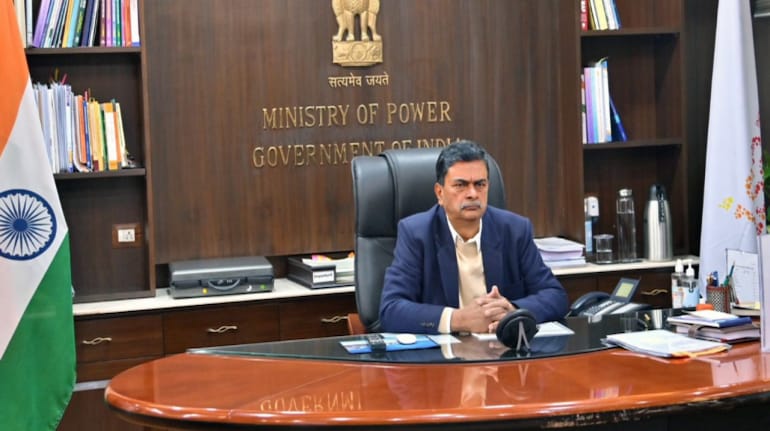



Union Power Minister Raj Kumar Singh on April 24 called for the creation of an international credit guarantee fund and a renewable energy bank to facilitate the development of renewable energy projects across the globe.
While speaking at a round table conference organised by the International Solar Alliance, Singh said that world governments need to come together to set up a credit guarantee fund to invest in renewable energy, especially solar energy, in developing countries like those in Africa.
"There is an immediate need for global investment in solar energy as that is the only way to address growing climate concerns across the world. The world needs to address carbon emissions together and not as individual countries," he said.
President of the European Commission Ursula von der Leyen and industry players in the renewable energy space were also present at the roundtable conference held in Gurugram.
Singh also said that countries should come together and work towards making hydrogen fuel cells more efficient.
"This is again a challenge as an international community and that is how to make fuel cells more efficient; if we are going to move towards hydrogen economy the efficiency of fuel cells is critical and we are working on it, some fuel cells have been developed and this again is something the world has to share. We again have to get together and share the best technologies. If we look at it only from the commercial point of view, that we keep the best fuel cells for ourselves, license them and charge huge royalties, then the pace of transition will not be fast enough. That is something which needs to be there in the minds of the policymakers," Singh said.
The call from the minister comes at a time when the government is trying to boost green hydrogen production in the country and also popularise the hydrogen-powered fuel cell electric vehicles.
He said that India has made massive strides in energy transition and added 163 GW of renewable energy by November 2021, despite the country’s per capita emission being “one-third of the world average".
Ursula von der Leyen also noted India’s commitment to renewable energy. She added that India and European Union (EU) have shared goals for green energy, including solar power.
“India and the European Union have a lot in common. I’ve seen your goals to have 50 percent of energy from renewables in 2030. We share the idea that we really have to look into solar energy, wind energy, biomass, hydropower… geothermal. These are the ingredients for the success of the economy, betterment of people and of course protection of our climate,” the EU president said.
The EU president arrived in India for a two-day official visit on Sunday to strengthen India-EU strategic partnership. This will be her first visit to India as the president of the European Commission.
Discover the latest Business News, Sensex, and Nifty updates. Obtain Personal Finance insights, tax queries, and expert opinions on Moneycontrol or download the Moneycontrol App to stay updated!
Find the best of Al News in one place, specially curated for you every weekend.
Stay on top of the latest tech trends and biggest startup news.